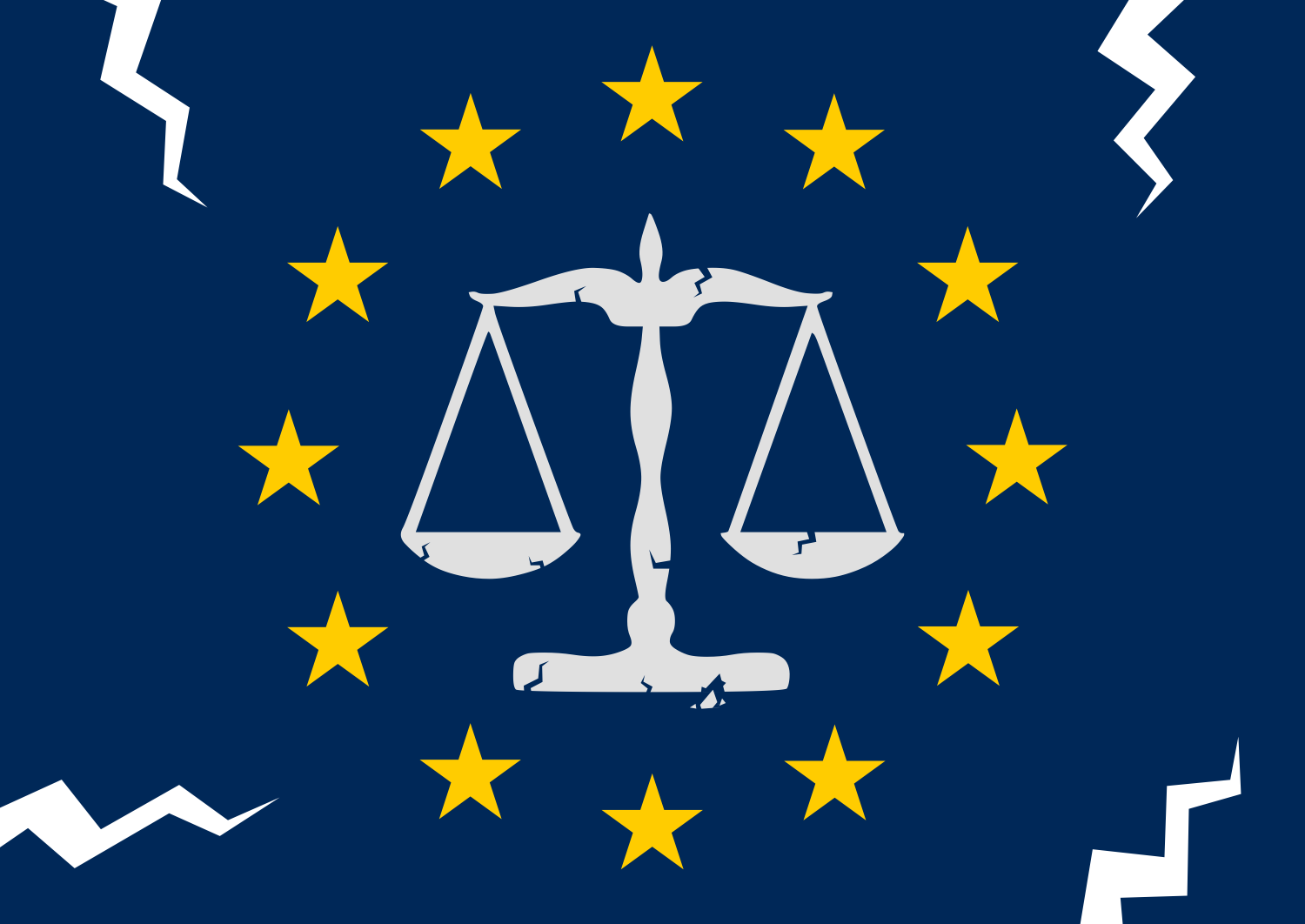French Government's Defense Decisions: A Democratic Deficit?

Table of Contents
France's defense policy has undergone significant shifts in recent years, prompting intense debate about the extent of democratic oversight and public involvement in crucial strategic decisions. This article examines the potential for a French defense policy democratic deficit, exploring its implications for national security and citizen engagement. We will analyze key areas where transparency and accountability may be lacking, highlighting concerns and potential avenues for improvement. The question remains: Is the French public truly involved in shaping its own security future, or is a democratic gap undermining the legitimacy of these vital decisions?
<h2>Lack of Transparency in Military Budgeting and Spending</h2>
The French defense budget's complexity and lack of detailed public explanation hinder effective scrutiny by parliament and civil society, contributing significantly to the perceived French defense policy democratic deficit.
<h3>Opaque Budgeting Processes</h3>
The current system lacks transparency, making it difficult to understand how defense funds are allocated and spent.
- Limited public access to detailed budgetary breakdowns: The lack of easily accessible, itemized breakdowns makes it challenging for the public and parliamentary representatives to track spending effectively. This opacity hinders informed debate and oversight.
- Difficulty in tracking the allocation of funds to specific programs: The absence of clear program-specific budget lines obscures how money is actually spent, leaving room for potential mismanagement or misallocation of resources.
- Insufficient justification for budget increases or cuts: Explanations for changes in defense spending often lack sufficient detail and justification, making it difficult to assess their merit and impact.
<h3>Limited Public Audits of Defense Spending</h3>
While audits exist, concerns persist regarding their scope and effectiveness, further fueling the debate on the French defense policy democratic deficit.
- Concerns about potential conflicts of interest in auditing processes: The close relationship between auditors and the defense establishment raises questions about impartiality and the thoroughness of audits.
- Need for stronger parliamentary oversight committees: More robust committees, with enhanced investigative powers and access to information, are crucial for scrutinizing defense spending.
- Demand for more publicly available audit reports: Making audit reports readily available to the public enhances transparency and accountability, strengthening democratic oversight.
<h2>Limited Parliamentary Scrutiny and Oversight</h2>
The French parliament's role in defense decision-making is frequently criticized as insufficiently robust, contributing to the perception of a French defense policy democratic deficit.
<h3>Insufficient Parliamentary Debate and Control</h3>
MPs often lack the necessary information and time to effectively scrutinize defense policies.
- Limited opportunities for MPs to question key decisions: The limited opportunities for questioning ministers and officials on defense matters hinder meaningful parliamentary debate.
- Lack of accessible information provided to MPs for informed decision-making: MPs often receive insufficient data to make informed judgments on complex defense issues.
- Inadequate mechanisms for holding the executive accountable: Current mechanisms for holding the executive accountable for defense decisions are insufficient to ensure effective oversight.
<h3>Weak Public Accountability Mechanisms</h3>
The executive branch's considerable power in defense matters raises concerns about its accountability to the public, highlighting a significant element of the French defense policy democratic deficit.
- Limited avenues for public challenge of defense policies: The lack of clear mechanisms for citizens to challenge defense policies limits public participation and accountability.
- Insufficient mechanisms for redress of grievances related to defense spending: Citizens have few avenues to address concerns regarding potential misuse or waste of defense funds.
- Need for greater public participation in the policy-making process: Increased public involvement would ensure that defense decisions reflect the broader public interest and values.
<h2>The Influence of the Military-Industrial Complex</h2>
The close relationship between the French government, military, and defense industry raises concerns about undue influence in policymaking, exacerbating the French defense policy democratic deficit.
<h3>Potential Conflicts of Interest</h3>
The potential for conflicts of interest undermines the objectivity and transparency of defense decision-making.
- Lobbying efforts by defense contractors impacting budgetary decisions: Intense lobbying by defense contractors can sway budgetary decisions away from optimal resource allocation.
- Potential for preferential treatment of specific firms: The potential for favoritism towards certain defense firms raises questions about fairness and competition.
- Lack of transparency in government-industry relations: The opaque nature of government-industry interactions hinders effective scrutiny and accountability.
<h2>Public Opinion and Engagement in Defense Policy</h2>
Limited public awareness and participation in defense policy debates further contribute to the French defense policy democratic deficit.
<h3>Lack of Public Awareness and Participation</h3>
The complexity of defense issues often hinders public understanding and engagement.
- Need for improved public education and communication on defense matters: Clear and accessible information is needed to foster public understanding of defense policies.
- Greater opportunities for public consultations and engagement in policy debates: More structured opportunities for public input are essential for effective democratic participation.
- Use of digital platforms to facilitate public participation: Online platforms can be used to improve access to information and facilitate public discussion on defense issues.
<h2>Conclusion</h2>
The analysis presented suggests a potential democratic deficit in French defense policymaking. The lack of transparency in budgeting, insufficient parliamentary oversight, the influence of the military-industrial complex, and limited public engagement all contribute to this concern. Addressing this French defense policy democratic deficit requires enhancing transparency in defense spending, strengthening parliamentary scrutiny, improving public accountability mechanisms, and promoting greater public awareness and participation in defense policy debates. For a truly representative and effective defense policy, increased efforts must be made to overcome the identified challenges and ensure the French public has a meaningful voice in shaping the nation’s security future. We must critically examine the ongoing issues related to the French defense policy democratic deficit and push for comprehensive reform.

Featured Posts
-
 Corinthians X Sao Bernardo Horario Do Jogo De Hoje E Onde Assistir
May 04, 2025
Corinthians X Sao Bernardo Horario Do Jogo De Hoje E Onde Assistir
May 04, 2025 -
 16 Year Olds Torture Death Mothers Criminal Neglect Case
May 04, 2025
16 Year Olds Torture Death Mothers Criminal Neglect Case
May 04, 2025 -
 Britains Got Talent Teddy Magics On Air Chaos Explained
May 04, 2025
Britains Got Talent Teddy Magics On Air Chaos Explained
May 04, 2025 -
 Deutschland Sucht Den Esc Star 2025 Die Sieben Halbfinalisten Stehen Fest
May 04, 2025
Deutschland Sucht Den Esc Star 2025 Die Sieben Halbfinalisten Stehen Fest
May 04, 2025 -
 A Critical Look At Alexandre Dumas The Count Of Monte Cristo
May 04, 2025
A Critical Look At Alexandre Dumas The Count Of Monte Cristo
May 04, 2025
